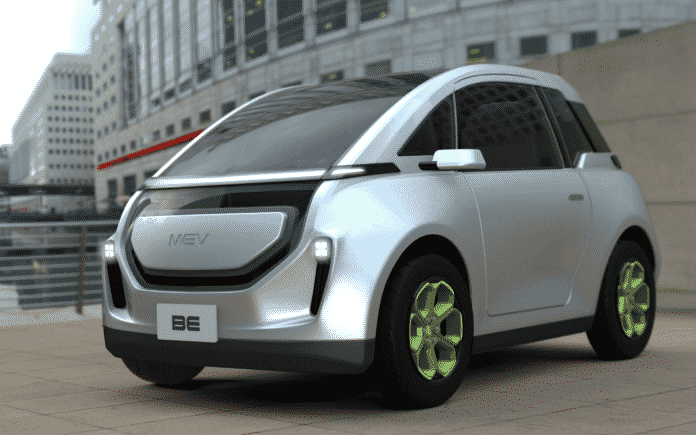A Greater Manchester company, MeV Ltd is addressing the twin issues of reducing vehicle emissions and improving air quality by producing innovative and affordable electric vehicles, the BeeAnywhere.
The 2020 United Nations Climate Change Conference, COP26 will be held in Glasgow this November but without the mass adoption of electric vehicles it is unlikely that UK targets for air quality or carbon emissions can be met – something that the BeeAnywhere from MeV Ltd was specifically designed to address.
MeV has spent the past two years designing and developing a low-cost electric vehicle that can retail at the same price as an average car, for example an 8-year-old hatchback, rather than competing on price with new vehicle.
Dr Anthony Keating, MeV CEO explained “Emissions free transport should not be limited to those who can afford to pay a premium. The BeeAnywhere makes electric vehicles affordable, stimulating mass adoption and offers the potential to displace millions of older polluting vehicles, especially if backed by a scrappage scheme.”
To create an affordable vehicle the company has combined the expertise of the National Centre for Motorsport Engineering at the University of Bolton with advanced composites from the University of Manchester’s Graphene Engineering and Innovation Centre. The resulting innovative chassis design and composite body allows the vehicles to be assembled from a minimum of parts, significantly reducing production and component costs.
In contrast to other automotive manufacturers whose strategy has been to replicate an existing automobile with an electric power train, the BeeAnywhere has been specifically designed as a two-seat urban vehicle, controlled via the user’s smart phone and with the comfort, range and performance demanded by the urban environment. The company is currently building pre-production vehicles.
MeV Chairman Tim Harper added “For the UK to achieve targets set out in the government’s 2019 Clean Air Strategy there needs to be a rapid switch to electric vehicles. Currently there are no viable alternatives to conventional vehicles at an equivalent price point and the targets will not be met simply by charging for entering Ultra Low Emission Zones (ULEZ). The upcoming COP26 conference gives the government an opportunity to back low carbon innovations and stimulate the creation of new industries.”
Professor G E Holmes DL, University President and Vice Chancellor commented “The University is proud to be associated with the MeV development. Universities are at the forefront of technology developments and innovation. This new affordable electric vehicle will give effect to a step change in EV adoption, and we at Bolton are delighted to have played a part in such an important new product.”
James Baker, CEO, The Graphene Engineering Innovation Centre, (GEIC), at The University of Manchester commented “The Graphene Engineering Innovation Centre (GEIC), at The University of Manchester, is pleased to be working with a number of automotive companies like MeV to accelerate their adoption of high strength light weight graphene-based composite materials. MeV are currently collaborating with the GEIC through the ERDF Bridging the Gap programme, which aims to work with Greater Manchester SMEs to accelerate the adoption of graphene into a range of products and processes.”
About MeV Ltd
MeV Ltd was founded in 2019 by Dr Tony Keating of Keating Supercars, and Tim Harper a former European Space Agency engineer who has founded a number of tech companies ranging from scientific instruments to water filtration. Starting with the question “why are electric vehicles so expensive” the team tested several small electric vehicles over thousands of miles in order to understand how to design a vehicle to be highly efficient, low cost and easily maintained.
By combing their knowledge of automotive engineering and advanced materials the team realised that there was an opportunity to design an electric vehicle from the ground up, specifically optimised for low cost production. The reduction of the complexity seen in traditional vehicles combined with the use of advanced materials allowed the BeeAnywhere to be designed for minimum maintenance and maximum recyclability.
MeV has spent the past year working with a team of automotive designers and engineers to improve the final design, with assembly, production and end of life recyclability taken into account from day one.




